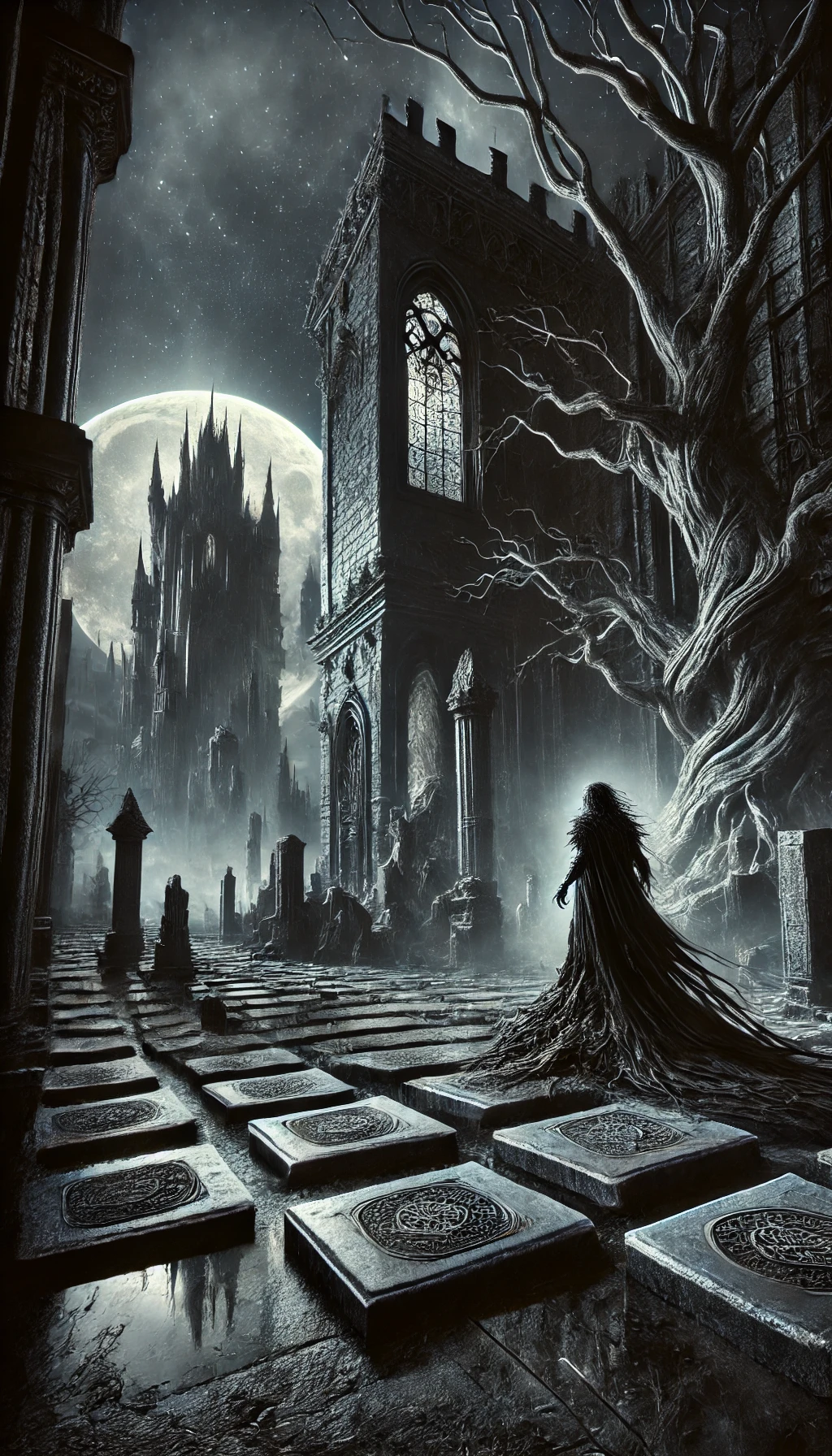“Thus Spake Zarathustra” by Friedrich Nietzsche, first published in 1885, is a philosophical work that blends poetic narrative with deep existential themes. The text centers on the character of Zarathustra, a prophet-like figure who embarks on a journey to share his philosophical insights. Nietzsche presents the ideas of the Übermensch (Superman), eternal recurrence, and the death of God through allegories, speeches, and parables, positioning this work as a cornerstone of his existential and post-religious thought. Its themes of self-overcoming and critique of conventional morality have left a profound impact on modern philosophy.
Plot Summary
When Zarathustra reached the age of thirty, he retreated from the world, ascending into the mountains to live in solitude for ten years. High in the peaks, accompanied only by his eagle and serpent, he found peace in isolation, contemplating the nature of man and the universe. But one morning, weary of his wisdom, he felt compelled to descend once more to mankind, to share the truths he had discovered. Before the dawn, he rose and spoke to the sun, asking for its blessing as he prepared to return to the people below. Zarathustra believed he could no longer keep his insights to himself and had to bestow them upon those who were still mired in their ignorance and limitations.
On his way down from the mountains, Zarathustra encountered an old hermit in the forest who had renounced mankind in favor of God. The hermit did not recognize that Zarathustra no longer sought divine communion but rather sought to bring a new message to humanity. As they parted ways, Zarathustra mused to himself, realizing the hermit had not yet heard the news that God was dead.
Zarathustra arrived in a nearby town, where the people had gathered to watch a tightrope walker perform. Observing the crowd, Zarathustra began to speak to them, proclaiming that mankind was something to be surpassed. He introduced the concept of the Superman, a being who would transcend humanity’s current state. He urged them to remain true to the earth, rejecting the comfort of religious and otherworldly hopes, which, in his view, were poisoning their souls. Instead, they should embrace the Superman, the meaning of life on earth.
As Zarathustra spoke, a voice from the crowd interrupted him, eager for the tightrope walker’s performance. The walker began his crossing, only to be pursued by a mocking figure who caused him to fall. The crowd scattered in horror, but Zarathustra stayed, watching as the tightrope walker lay dying. The fallen man, fearful of damnation, asked Zarathustra for reassurance. Zarathustra consoled him, denying the existence of both heaven and hell, and promised to bury him with his own hands.
Carrying the body on his shoulders, Zarathustra left the town as evening fell. A fool followed him, warning him that the people of the town hated him and urging him to flee. Zarathustra moved on, resolute. As night descended, he arrived at a lone house where an old man gave him bread and wine. Zarathustra stayed until morning and then buried the body in the hollow of a tree, reflecting that he needed living companions, not the dead, to help him realize his vision of the Superman.
In the following days, Zarathustra continued his journey, delivering his message to those he encountered. He spoke of the three metamorphoses of the spirit: from a camel, burdened with the weight of tradition and duty, to a lion, who rejects imposed values and asserts its will, and finally to a child, representing innocence, creation, and a new beginning. This child, Zarathustra explained, was the key to reaching the state of the Superman, one who creates new values and wills his own destiny.
Zarathustra’s teachings, however, were often met with misunderstanding. In one town, he found himself surrounded by people who longed for comfort and ease, the “Last Men,” as he called them. These Last Men had no desire to strive or suffer; they sought only the shallow pleasures of contentment and security. Zarathustra lamented their complacency, for they were the antithesis of the Superman—small, fearful, and stagnant. He realized that his message of transformation was wasted on them, for they could not grasp the greatness he envisioned for humanity.
Time passed, and Zarathustra withdrew once again into solitude. He felt the weight of his failure to communicate his ideas to the masses, and his soul was heavy with disappointment. In his seclusion, Zarathustra pondered the idea of eternal recurrence, the notion that life, in all its joys and sufferings, would repeat itself endlessly. This eternal cycle was not to be feared, but embraced, for it meant that every moment must be lived fully, with the awareness that it would recur eternally. This concept deepened Zarathustra’s resolve; only those who could affirm life in all its aspects—its pain, its challenges, its beauty—were worthy of the Superman.
Zarathustra’s journey resumed, and he sought out disciples, those rare few who might understand his vision. He did not seek followers to form a herd, for he despised the notion of the crowd and the collective will. Instead, he looked for individuals—fellow creators—who would walk the path of self-overcoming and carve out new values for themselves. He found some who resonated with his teachings, but he remained wary, knowing that even they might falter under the weight of his ideas.
Despite his growing isolation, Zarathustra’s faith in humanity’s potential did not waver. He spoke of the dangers faced by the noble and the strong, warning that they might be tempted to abandon their higher aspirations and fall into cynicism or hedonism. Many noble souls, in their despair over the failure of their ideals, had lost their way, turning to base pleasures or destructive behavior. Zarathustra urged his disciples to hold fast to their highest hopes, to continue striving for greatness despite the hardships they faced.
As he moved through the world, Zarathustra continued to refine his teachings. He denounced the preachers of death, those who glorified suffering and renunciation. He condemned those who clung to the idea of an afterlife or who preached pity and weakness as virtues. Instead, Zarathustra called for a love of life, for courage and strength in the face of adversity. He envisioned a humanity that could look beyond its current state, rejecting both religious dogma and nihilistic despair.
In the end, Zarathustra knew that his path was a lonely one, but he embraced it. His mission was not to lead the many but to inspire the few, those who would rise above the ordinary and achieve the extraordinary. His teachings, like the lightning he often invoked, were meant to strike and ignite the souls of those who were ready to transcend the limitations of their existence and move toward the dawn of a new humanity.
Main Characters
Zarathustra: The central character, modeled after the ancient Persian prophet Zoroaster, is Nietzsche’s mouthpiece for his philosophical teachings. Zarathustra descends from the mountains after years of solitude to impart wisdom to humanity. He advocates for the overcoming of man through the ideal of the Superman and rejects traditional morality and religion.
The Tightrope Walker: A symbolic figure Zarathustra encounters early in the story, representing the perilous journey of man between the animal and the Übermensch. His fall signifies the difficulty and danger inherent in human self-overcoming.
The Last Man: An embodiment of mediocrity and contentment, the Last Man is the antithesis of the Übermensch. This figure represents the stagnation of human progress, as he seeks only comfort and security, avoiding any higher aspirations or suffering.
The Saint: A hermit Zarathustra meets who has retreated from society, symbolizing religious piety. The saint contrasts with Zarathustra’s vision of humanity, as he is satisfied with worshipping God, unaware that Zarathustra comes to proclaim the death of God.
Theme
The Übermensch (Superman): This is one of Nietzsche’s key philosophical concepts. Zarathustra preaches that humanity should strive to transcend its limitations and embrace the creation of new values. The Übermensch represents the individual who overcomes the constraints of society, religion, and morality to create a higher existence.
The Death of God: Nietzsche uses Zarathustra to declare that “God is dead,” symbolizing the decline of traditional religious values in the modern world. This death requires humanity to find meaning through its own efforts rather than relying on divine authority.
Eternal Recurrence: This idea suggests that all events in life will be repeated infinitely. Nietzsche challenges readers to live as though each moment will recur eternally, forcing a reevaluation of how one leads their life, embracing existence fully despite its suffering and challenges.
Self-Overcoming: A recurring motif in Zarathustra’s teachings, self-overcoming refers to the process by which individuals transcend their limitations, renounce societal norms, and shape their own values. It is central to achieving the state of the Übermensch.
Writing Style and Tone
Nietzsche’s writing in Thus Spake Zarathustra is poetic, allegorical, and aphoristic, making the text both challenging and profound. He employs a grand, almost biblical tone, with much of the text written in the form of speeches delivered by Zarathustra. The language is dense with metaphor and often elliptical, forcing readers to interpret the underlying philosophical concepts rather than taking the narrative at face value. Nietzsche also introduces irony and parody, particularly in his critiques of religion and conventional morality, which are presented through dramatic and sometimes provocative imagery.
The tone is often passionate and exultant, reflecting Zarathustra’s fervor for life and the possibilities of human transformation. At the same time, there are moments of melancholy, as Zarathustra grapples with the difficulty of conveying his message to a world that often misunderstands or resists him. Nietzsche’s philosophical ideas are not presented in an abstract, academic style but are dramatized through Zarathustra’s experiences and reflections, making the text feel like a work of both philosophy and literature.
We hope this summary has sparked your interest and would appreciate you following Celsius 233 on social media:
There’s a treasure trove of other fascinating book summaries waiting for you. Check out our collection of stories that inspire, thrill, and provoke thought, just like this one by checking out the Book Shelf or the Library
Remember, while our summaries capture the essence, they can never replace the full experience of reading the book. If this summary intrigued you, consider diving into the complete story – buy the book and immerse yourself in the author’s original work.
If you want to request a book summary, click here.
When Saurabh is not working/watching football/reading books/traveling, you can reach him via Twitter/X, LinkedIn, or Threads
Restart reading!








